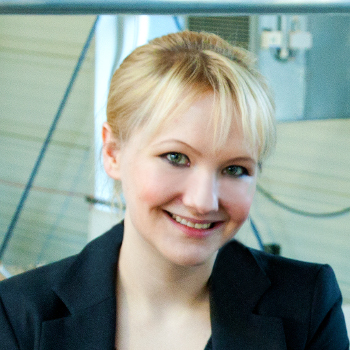
This is hoped to assist in the development of innovative products for the textile industry and for construction chemistry. Thereby, newly discovered enzymes will be employed to targetedly modify natural products or synthetic fibres and to equip them with useful properties. To pursue these goals, the nine partners from industry and higher-education research have a total of €8 million up to 2018, half of which is managed by the Federal Ministry of Education and Research (BMBF) in the context of ‘Innovation Initiative Industrial Biotechnology’.
Refining polymers using specially made enzymes and thereby laying the foundations for innovative products – this is the objective of the alliance FuPol. The initiative began in 2013 and comprises a total of nine partners from industry and academia. The coordinator of the network is Christian Leggewie, head of research at the enzyme specialists Evocatal. Two modules stand at the focus of the FuPol alliance: “Firstly, we want to make natural polymers such as lignin or cellulose usable for the construction chemistry,” says Leggewie, “and secondly we want to enhance synthetic polymers for the textile industry.” In both cases, the tools for these tasks are enzymes – the most multi-talented of all the protein molecules. Nature has already given us a huge variety of enzymes, and today, biotechnologists are scouring the bioarchives for the right molecules with the right skills. Aided by modern enzyme technology, they are also working to develop entirely new biocatalysts.
Enzymes for nibbling on nodules
Enzymes with new capabilities are in great demand in the textile and detergent industries, among other sectors. Washing powders already contain celluloses for cleaning cotton fabrics. “They nibble away at microfibres or the knot-like nodules that protrude from the textile, and in this way prevent the clothes from becoming rough and grey,” says Leggewie. The fast-growing market of synthetic textile fibres, which in 2011 saw production of around 36 million tons of PET fibres worldwide, faces a different challenge. After repeated washing, nodules will form in the synthetic fabrics – a problem for which no remedy has been found to date.“ We want to find new enzymes to tackle this issue,” stresses Leggewie. Together with academic partners from the University of Leipzig and the DWI at RWTH Aachen and RWTH Aachen, the Evocatal biotechnologists are searching through the esterase class of enzymes to find those that may be able to cope with the artificial substrate PET fibres and cleave apart the unwanted nodules. “We have a shortlist of around 30 enzymes, and these are now being put through an extensive testing phase,” says Leggewie. The best of these bio-based detergents are now being lined up for further development – work that is taking place together with the detergent manufacturer Henkel, where the enzymes must pass the ultimate washing machine tests. Other enzymes in the FuPol Alliance are aimed at modifying synthetic fibres in such a way that they become more adherant for dyes and paints.
In a further module, the partners in the strategic alliance are busy working on natural polymers, i.e. complex molecules such as lignin and cellulose that are derived from renewable resources. In the example of lignin, the associated pulp production produces about 50 million tonnes of mechanical pulp every year – waste that is burned. The idea now is for the alliance to use enzymes to convert lignin into a concrete admixture. They are essential for modern civil engineering and help to save water, to increase the quality of the concrete and to ensure that the material dries quicker. However, most additives to concrete are petrochemical-based. “Concrete additives from natural substances can save water, release less CO2 and bring savings in energy,” says Leggewie. Here again, it is enzymes that are set to make the difference in this project: A team of researchers headed by Wolfgang Streit at the University of Hamburg have searched through environmental samples for interesting biocatalysts, with some success. “We’re also going through the test phases to pick out the best candidates,” says Leggewie.
Feasibility studies
Here, practical testing will also demonstrate the real-world actual qualities of the new bio-based concrete additives. The Swiss company SIKA Bauchemi, which has also worked with Evocatal on earlier projects, is responsible for this process. EMPA, which is likewise based in Switzerland, will work in close cooperation with industrial partners to develop a customised process for modifying the lignin. Ideally, the partners in the FuPol alliance will demonstrate the feasibility of all sub-projects by 2016. The following two years will then see the transfer to industrial scale of the production processes for bio-based tools and products.
Author: Philipp Graf


